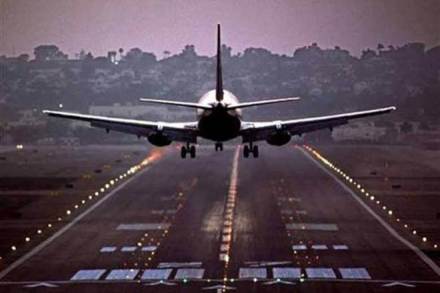The International Air Travel Association (IATA) has estimated that the financial impact of the coronavirus (Covid-19) on the passenger business of airlines would be somewhere between $63 billion and $113 billion. Earlier, when the virus was still confined to China, IATA’s revenue impact estimate was significantly lower, at $29.3 billion. Industry players fear that the impact of this Black Swan event on the industry will be similar to that of the global financial crisis of 2008.
“Airline share prices have fallen nearly 25% since the outbreak began, some 21 percentage points greater than the decline that occurred at a similar point during the SARS (Severe Acute Respiratory Syndrome) crisis of 2003,” IATA said on Thursday.
Assuming a decrease in passenger numbers in all the markets, which have at least 10 confirmed Covid-19 positive cases as of March 2, the IATA estimated a 19% loss in worldwide passenger revenues, aggregating to around $113 billion. “Financially, this would be on a scale equivalent to what the industry experienced during the global financial crisis,” IATA said. Markets, including China, Japan, Australia, Malaysia, Singapore, Thailand and Vietnam, are expected to see a 23% decrease in passenger numbers, resulting in a revenue loss of close to $50 billion. In the rest of the Asia-Pacific region, the estimated revenue loss would be around $7.6 billion.
Tourist hot spots in Europe, including France, Italy, Switzerland and the UK, are expected to see a 24% decrease in passenger numbers, resulting in a $37.3-billion impact on revenues. Meanwhile, West Asian countries, including Kuwait, the UAE and Iran, are likely to see a 23% fall in numbers, resulting in a near $5-billion revenue loss. Canada and the US are staring at a passenger revenue loss of around $21.1 billion resulting from a 10% decrease in passenger numbers.
Earlier this week, German airline Lufthansa said it would cut capacity by grounding 150 planes amid slowing travel demand. In February, Singapore Airlines also slashed over 670 flights across its global network. Cathay Pacific last month reportedly asked its employees to take voluntary unpaid leave to help the airline preserve cash. “Many airlines are cutting capacity and taking emergency measures to reduce costs. Governments must take note. Airlines are doing their best to stay afloat as they perform the vital task of linking the world’s economies. As governments look to stimulus measures, the airline industry will need consideration for relief on taxes, charges and slot allocation. These are extraordinary times,” said Alexandre de Juniac, director general and CEO, IATA.
Global air travel demand (measured in revenue passengers kilometres) in January grew 2.4%, which is the slowest monthly growth since April 2010, IATA said, adding that the January data was just the tip of the iceberg in terms of traffic impact. Airlines in the Asia-Pacific region, which account for 34.7% of the global share, saw only a marginal 0.4% increase in air travel demand in January. Meanwhile, air travel demand of European airlines, which account for around 27% of global airlines, grew 1.6% in January, the IATA data showed. Analysts expect February and March data to show a more severe impact.
IATA’s more conservative estimate, which assumes the spread of the virus is limited and that the worst-affected geographies will experience a recovery, pegs the revenue loss at $63 billion. At the same time, as a result of a significant fall in oil prices, fuel bills of airlines are expected to come down by $28 billion globally. The reduced fuel costs “would provide some relief but would not significantly cushion the devastating impact that Covid-19 is having on demand”, the IATA said. IATA’s estimates currently do not include cargo revenues.
